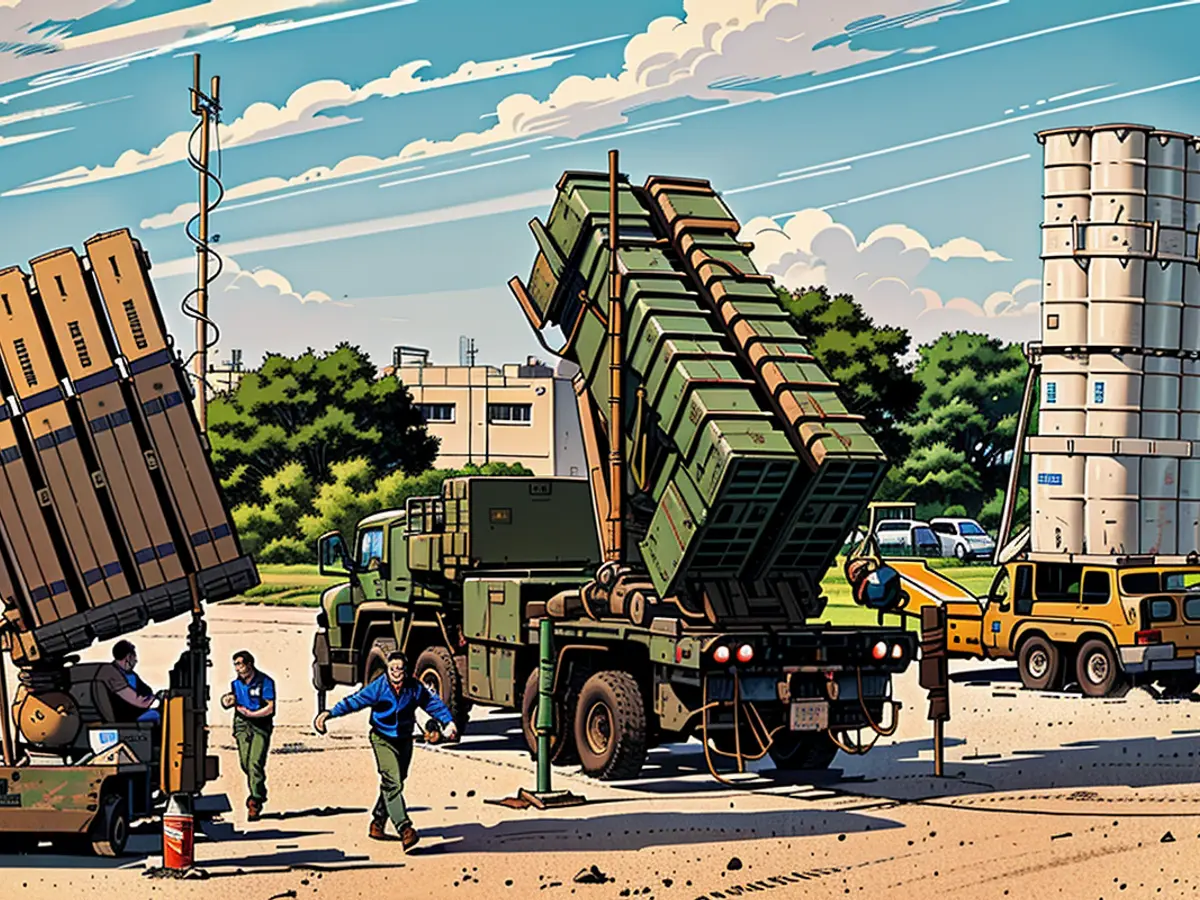Which entities provide Israel with military armaments?
This isn't the first time a significant ally of Israel has threatened to halt supplies. Back in May, U.S. President Joe Biden threatened to halt certain weapon shipments to Israel if an invasion of the southern city of Rafah occurred. Despite this, Prime Minister Benjamin Netanyahu continued with the campaign, and the supply of U.S. weapons remained uninterrupted.
However, the latest threat is more severe. Israel has been given 30 days to improve the humanitarian situation on the ground, or risk violating U.S. laws governing foreign military assistance, potentially putting U.S. military aid at risk.
While other nations have significantly reduced their military aid to Israel over the past year, the U.S. has remained a consistent supplier.
Here's a breakdown of the major weapon suppliers to Israel:
The United States:
The U.S. is Israel's largest weapon supplier. In 2023, 69% of Israel's weapon imports came from the U.S., according to the Stockholm International Peace Research Institute (SIPRI). Germany was the second-largest supplier, providing 30%, followed by Italy with 0.9%. The UK, France, and Spain were among other minor contributors.
The U.S.-imported weapons have played a significant role in Israel's military actions against Hamas and Hezbollah, according to SIPRI. By the end of 2023, thousands of guided bombs and missiles had been delivered from the U.S. to Israel. F-35 and F-15 fighter jets were also delivered to Israel from the U.S. in January 2024.
CNN's analysis has identified numerous instances of U.S.-manufactured munitions being used throughout the war, including in strikes that resulted in civilian casualties. Recently, CNN discovered that U.S.-manufactured 2,000-pound bombs were likely used in the Israeli attack that killed Hezbollah's leader, Hassan Nasrallah, in Beirut.
The U.S. also provides financial assistance to Israel, delivering over $130 billion in bilateral funding since 1948, according to the U.S. State Department. In 2019, the two countries signed a Memorandum of Understanding that ensured the U.S. would annually provide Israel with $3.3 billion from the Foreign Military Financing program, and an additional $500 million for missile defense.
Germany:
In 2023, Germany contributed 30% of Israel's weapon supply. However, this supply has significantly decreased over the course of 2024.
Earlier this year, the International Court of Justice rejected a request from Nicaragua to order Germany to stop supplying military aid to Israel. One of their key reasons was that German military aid to the country had fallen from approximately €200 million ($220 million) in October 2023 to €1 million ($1.1 million) by the time of the judgement in March.
Despite this, German Chancellor Olaf Scholz confirmed that Germany had not stopped providing Israel with arms, stating that weapons would be delivered to Israel "in the near future."
Historically, Israeli security has been a core element of German foreign policy due to the Nazi Holocaust against Jews during World War II.

Italy:
Italy has supplied helicopters and guns to Israel, according to SIPRI, and is a partner in the F-35 fighter jet program, helping to manufacture parts. However, Foreign Minister Antonio Tajani announced in late January that Italy had halted arms shipments to Israel since October 7, 2022. Any deals signed before then were still being honored, according to SIPRI.
The United Kingdom:
The British government claims that its "exports of military goods to Israel are low." It issued licenses worth $23.42 million in 2023. However, the UK has suspended some licenses for military equipment to Israel over the past year.
Foreign Minister David Lammy suspended around 30 licenses out of 350 to Israel upon the Labour government taking office in July. An official assessment found that there was a clear risk that the weapons could be used "to commit or facilitate a serious violation of international humanitarian law."
The suspensions impacted the supply of some parts for drones and F-35 fighter jets. However, the UK government did not suspend the supply of material not used in the Israel-Hamas conflict – for example, for training purposes.
Spain:
The Spanish Ministry of Foreign Affairs, European Union, and Cooperation issued a press release in February, stating that the government had not issued any arms sales to Israel since October 7, 2022.
On October 11, 2022, Spanish Prime Minister Pedro Sanchez condemned what he described as an "unacceptable" Israeli offensive in Lebanon and urged the international community to stop arms exports to Israel.
France:
France has historically provided Israel with arms, but the relationship between the two countries has become strained in recent weeks as French President Emmanuel Macron called for an end to arms exports to Israel to push for a ceasefire in Lebanon and Gaza.
On October 5, 2022, Macron called for the complete suspension of the sale of arms "used in the war in Gaza," and stressed that France had not been involved in their supply. According to SIPRI, its data does not show any French exports of major arms to Israel from 2019-23 but notes that France did supply components for arms.
The Middle East region has been a significant recipient of weapons from various global powers, with the United States being Israel's largest supplier. The world's actions towards Israel's military aid have shifted, as other nations have reduced their supplies, but the U.S. has continued to be a consistent provider.








